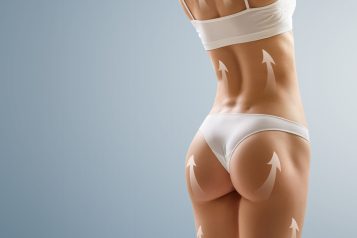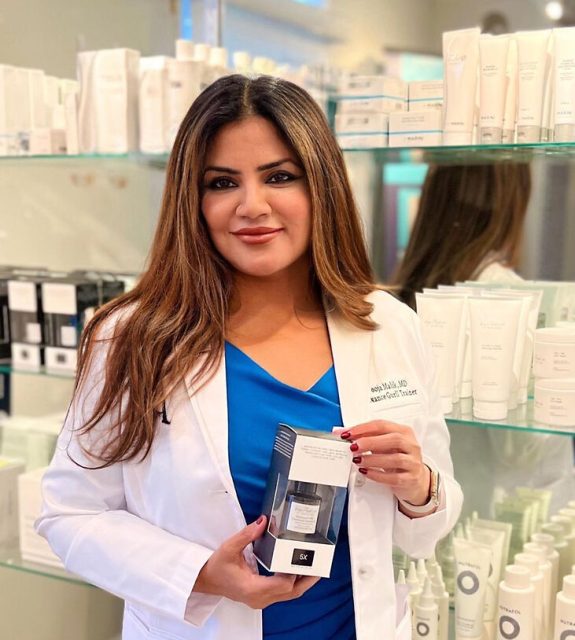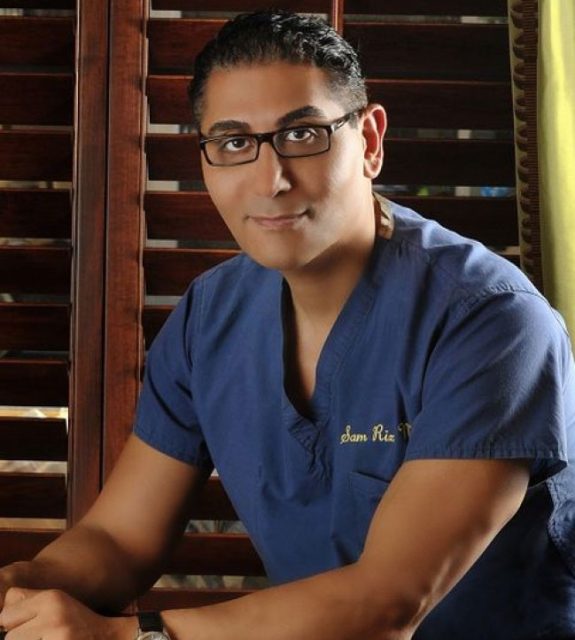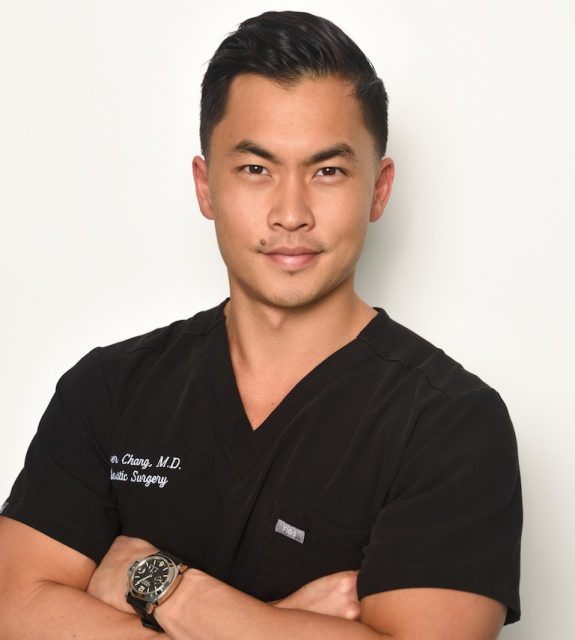 Photo Credit: Shutterstock
Photo Credit: Shutterstock
The era of overfilled faces is finally coming to an end, and the hot new trend is dissolving facial fillers. It seems like everyone, from Blac Chyna to Courtney Cox to Kylie Jenner, is jumping on board with this craze. Even the Kardashians may have reversed some of their procedures – scandalous! And it's not just facial fillers that people are saying "no thanks" to anymore; Brazilian Butt Lifts are also falling out of favor, with more and more people requesting reversals. Luckily, we've got the inside scoop from Haute Beauty expert Dr. Ira Savetsky, who's here to talk about reversing cosmetic surgeries.
Medical Concerns
Reversing cosmetic surgery, whether it's to correct undesirable results or to remove a previously implanted device or material, can involve various medical concerns. Some common medical concerns involved in reversing cosmetic surgery may include:
- Surgical risks: Just like any surgical procedure, reversing cosmetic surgery may carry risks associated with anesthesia, infection, bleeding, scarring, and other surgical complications. It's important to thoroughly assess the risks and benefits of the reversal procedure and discuss them with a qualified medical professional.
- Changes in anatomy: Reversing cosmetic surgery may involve alterations to the patient's anatomy, especially if previous surgical modifications need to be undone or revised. This may include reshaping or removing previously implanted devices, such as breast implants, or reversing changes made to facial structures through procedures like rhinoplasty or jawline augmentation.
- Psychological and emotional considerations: Cosmetic surgery can have a significant impact on a person's self-image and psychological well-being. Reversing cosmetic surgery may also have psychological and emotional implications, such as coping with changes in appearance, managing expectations, and dealing with potential emotional distress related to the reversal process.
- Scar tissue and tissue damage: Reversing cosmetic surgery may involve working with scar tissue or addressing tissue damage caused by previous procedures. Scar tissue can be complex to manage and may impact the outcome of the reversal procedure. Tissue damage from previous surgeries may also affect the complexity and safety of the reversal procedure.
- Cosmetic outcomes: Reversing cosmetic surgery may have an impact on the patient's cosmetic outcomes, including potential changes in appearance, contour, and symmetry. Managing patient expectations and achieving the desired cosmetic results requires careful planning and expertise on the part of the medical professional.
When considering a cosmetic surgery reversal, it's essential to approach the decision with caution and seek the advice of a qualified medical professional who specializes in this area. Each case is unique and individualized medical advice is necessary to make informed decisions about reversing cosmetic surgery procedures. It's crucial to thoroughly discuss the potential medical concerns and risks involved, as well as the expected outcomes, recovery time, and post-operative care required. Proper evaluation, planning, and post-operative care can help minimize risks and optimize outcomes.
View this post on Instagram
Reasons for Reversal
There are several reasons why someone may wish to reverse cosmetic procedures. These reasons may vary depending on the individual and the specific procedure in question. Some common reasons why someone may want to reverse a cosmetic procedure include:
- Unsatisfactory results: One of the primary reasons for seeking cosmetic surgery reversal is dissatisfaction with the results of a previous procedure. This could include outcomes such as asymmetry, uneven contour, scarring, or an unnatural appearance that the patient finds undesirable.
- Changes in personal preferences: Personal preferences and aesthetics can change over time. What may have been desired at the time of the original procedure may no longer align with the patient's current preferences or lifestyle. For example, a person who previously had breast implants may later decide they prefer a smaller breast size and wish to have them removed.
- Medical complications: Some cosmetic procedures can result in medical complications, such as infections, excessive scarring, or tissue damage. In such cases, the patient may need to undergo a reversal procedure to correct the issue and restore their health and well-being.
- Material or device-related issues: Certain cosmetic procedures involve the use of implanted materials or devices, such as breast implants or facial fillers. If these materials or devices cause discomfort, pain, or other issues, a reversal procedure may be necessary to remove or revise them.
- Psychological and emotional reasons: Cosmetic procedures can have psychological and emotional implications, and a person may seek reversal due to psychological distress or emotional discomfort related to their appearance. This could include issues such as body dysmorphia, poor self-esteem, or negative impacts on mental health.
- Personal or lifestyle changes: Changes in personal circumstances, such as a career change, relationship status, or lifestyle choices, may also prompt someone to consider reversing a cosmetic procedure.
- Health concerns: Changes in health status, such as a medical diagnosis or a change in medication, may require a reversal of a cosmetic procedure. Certain health conditions or medications may not be compatible with certain cosmetic procedures, and a reversal may be necessary for health reasons.
It's important to keep in mind that every individual's situation is unique and should be evaluated by a qualified medical professional before making any decisions about reversing a cosmetic procedure. It's also essential to have realistic expectations and be aware of the potential risks and considerations that come with any medical procedure, including those related to cosmetic procedures.






















